Building Medical Laboratory Capacity to Strengthen Health Systems
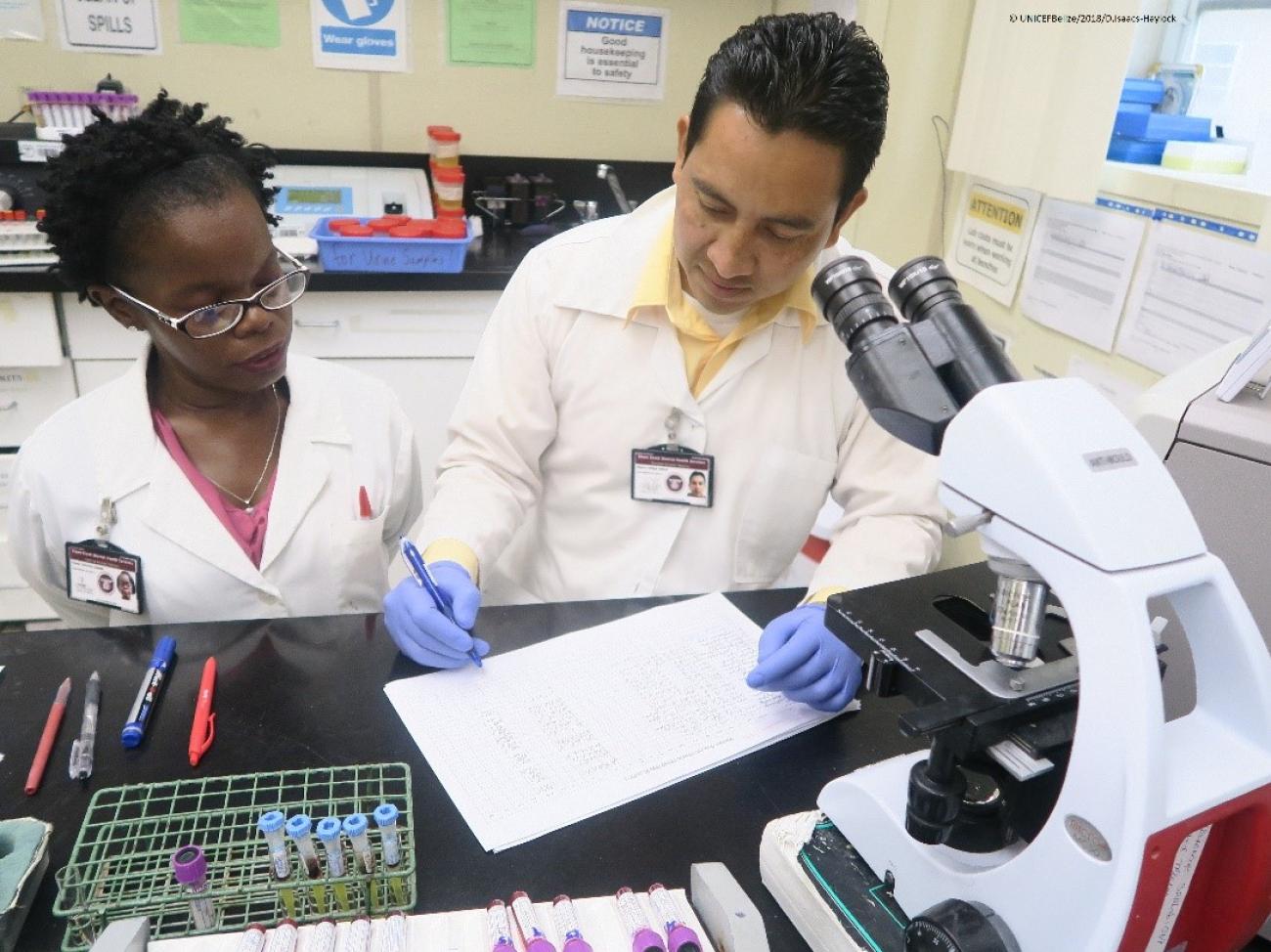
Belize’s health system is based on a primary health care model.
Background: Belize’s health system is based on a primary health care model. This is predicated on the reality that the country has a widely dispersed rural population, less than the optimum required number of physicians and nurses per capita population. There are currently ten medical laboratories in the country, one in each district hospital, three additional laboratories in the cities of Belmopan, Belize City and San Pedro, and one Central Medical Laboratory operating as a government reference laboratory within the Ministry of Health (MOH). The Central Medical Laboratory conducts more complex testing, and it is used for confirmatory positive tests submitted by the other laboratories in the country.
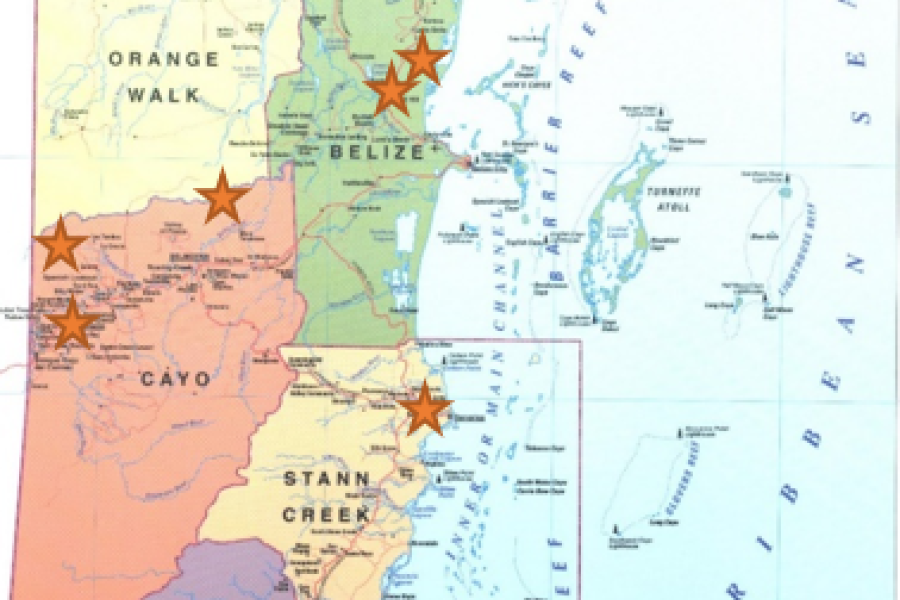
Challenges at the medical laboratories are limited space, shortage of adequate equipment, lack of technical capacities and inadequate access to health services for population living in hard to reach communities to medical laboratories.
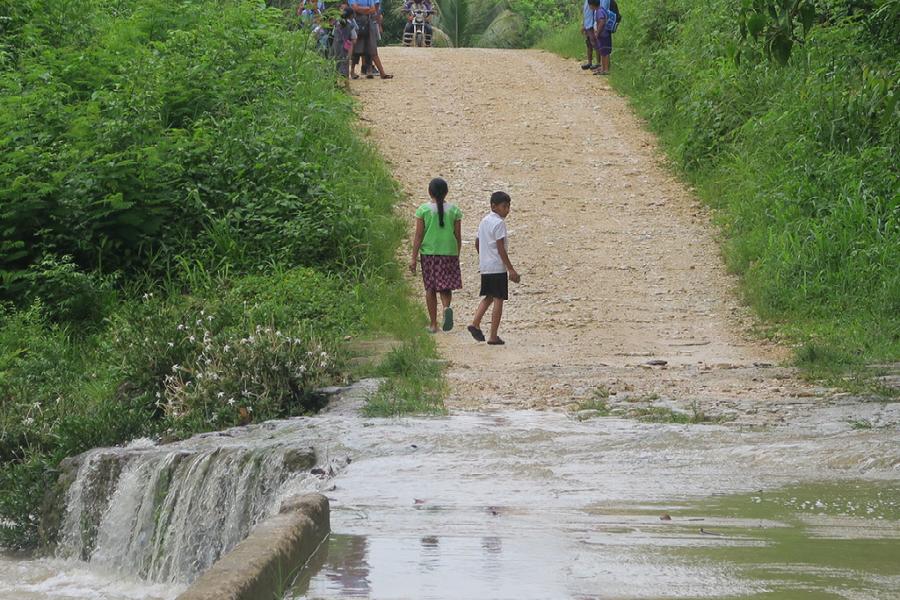
The Global Laboratory Initiative (GLI) is a programme led by the Probitas Foundation since 2010 with the aim of reinforcing the capacities of clinical diagnostic laboratories in the most vulnerable regions of the world. This paper profiles UNICEF’s programme support to strengthen the health systems aligned to the relevant building blocks, and thus, to improve maternal and child health outcomes, through the implementation in Belize of the GLI.
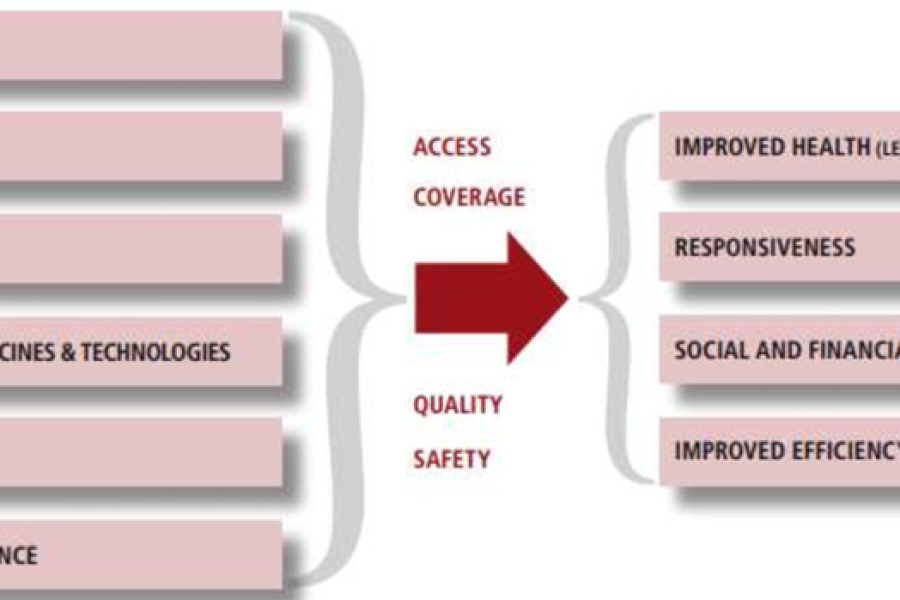
Essential Medical Products/Services with Quality and Safety
UNICEF Belize, in close partnership with the MOH, PROBITAS Foundation and UNICEF Spanish Committee, successfully supported the expansion of the Southern Regional Hospital medical laboratory in Dangriga, and construction of a laboratory in Santa Theresa health clinic, as well as the provision of medical equipment for both laboratories and the San Antonio polyclinic, which contributed to the provision of enhanced health services to Toledo and Stann Creek, two of the most underserved districts in the country, and especially to the most vulnerable communities, including to Maya and Garifuna children and families.
The Southern Regional Hospital medical laboratory provides services to more than 75,000 people in Stann Creek District as well as the southern district of Toledo and its 55 rural and remote communities. In environments that provide favourable conditions for the breeding of mosquitos and other pathogens, hence are at increased risk of vector borne and infectious diseases, this initiative contributes to provide essential health services to the most vulnerable populations, such as pregnant women, mothers, children and persons residing in remote villages with limited access to medical laboratories and services. Below are some of the key results led by the project:
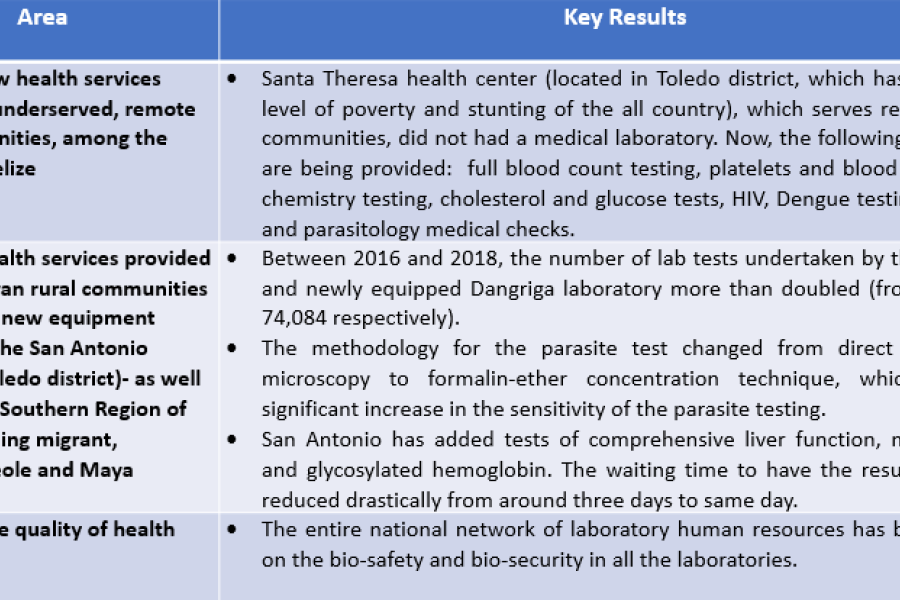
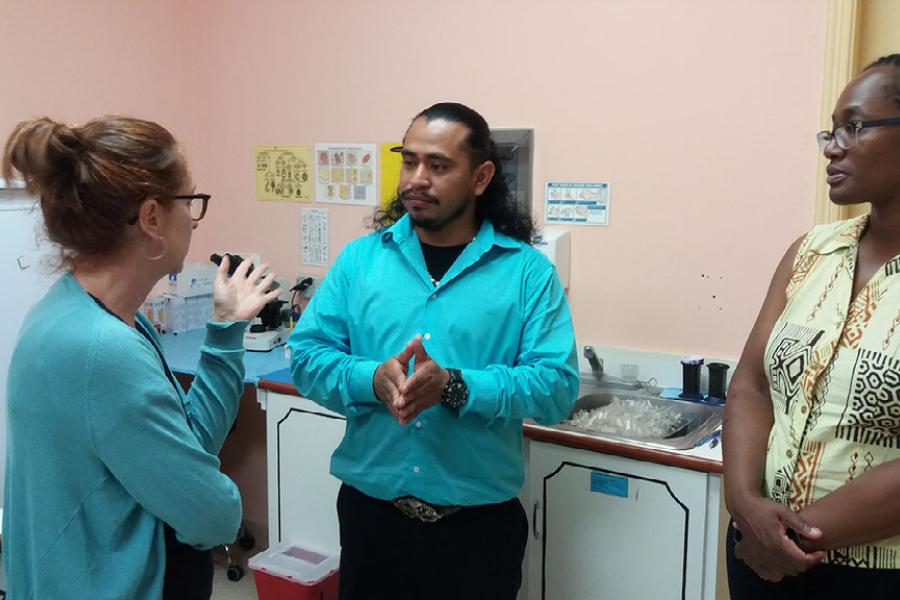
A laboratory test result involves a range of clients, including medical staff (nurses and doctors), laboratory technologists, and patients. To discover points for improvement of the laboratory services, a client satisfaction survey is on-going using the WHO Laboratory Quality Stepwise Implementation tool, it aims to measure: 1) Medical staff’s satisfaction on laboratory accessibility, and information and services provided by laboratory technologists; 2) Laboratory technologists’ satisfaction on communications with medical staff, Information provided by medical staff and Laboratory services; and 3) Patients’ satisfaction including their perceptions on waiting time, opening hours, environment, information given to them, their access to laboratory services, etc.
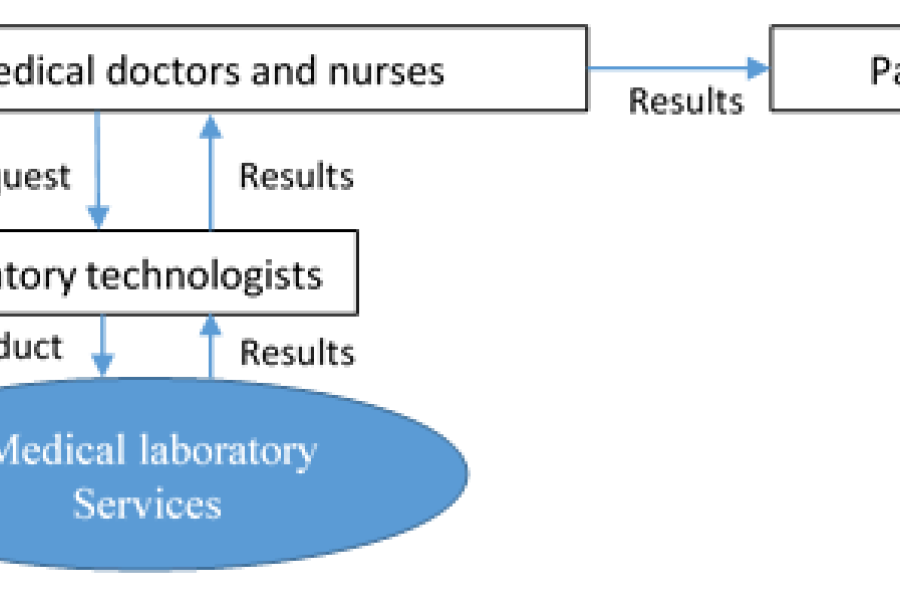
Health workforce
The technical expertise and technology acquired through the project will benefit and will be operated by the current staff of the clinical laboratories under consideration. The continuity will be ensured through the recurrent budget of the MOH that provides for regular maintenance of medical equipment.
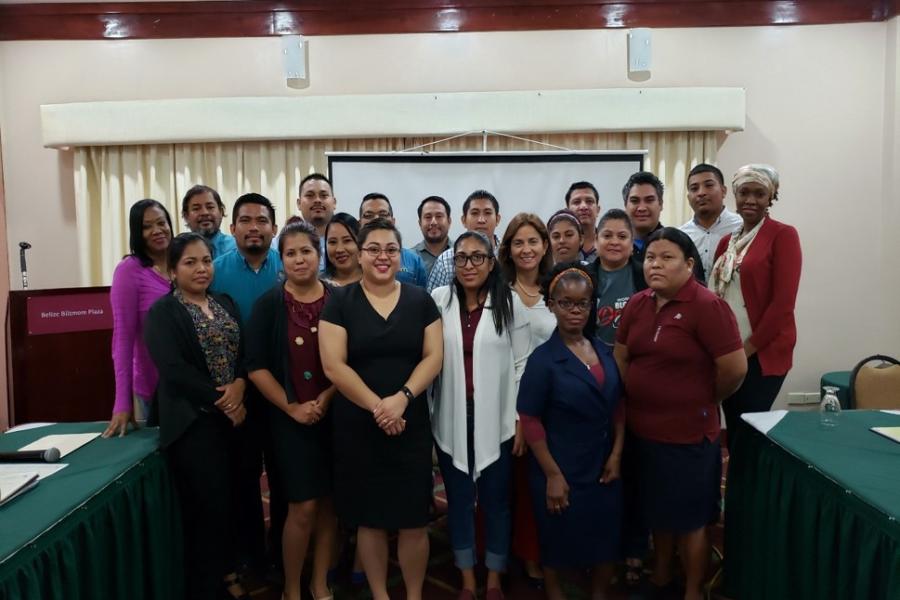
Service delivery
Data from the Multiple Indicator Cluster Survey (MICS) 2015 indicated that only 65% of women had their first antenatal care (ANC) visit during the first trimester of their last pregnancy. In Toledo District, medical laboratory testing is provided at the hospital through support from the Probitas Foundation, however, barriers for rural Maya community remains in accessing healthcare services. These include significant travel distance to the nearest healthcare facility, and lack of awareness of available medical resources in the district. In an effort to respond to this challenge, Belize’s MOH, together with the Health Education and Community Participation Bureau (HECOPAB), conducted a prenatal training of 58 CHWs from the Toledo District, with the technical support of UNICEF and financial support from the Probitas Foundation. The WHO-UNICEF package "Caring for newborns and children in the community" was used as guide for the training of CHWs.
Financing
The project’s economic sustainability is guaranteed through the involvement of the MOH, their full commitment and endorsement in all areas. With the expanded services including laboratory equipment and personnel skills, the yearly recurrent expenditure for laboratory services within the fiscal budget will be increased accordingly. Also, the budget for medical treatment has increased as more cases have been identified through the lab testing services.
Leadership/Governance
MOH has made a strong commitment to the project. The strong leadership of the Belize Government has led to many results: 1) The process was moving forward smoothly due to good internal coordination within the government and with partners; 2) Formal outreach by the Central Medical Lab to other units at MOH and other key stakeholders ensured the multi-discipline nature of the extended working group and that the efforts on system strengthening are both multi-discipline and multi-stakeholder. The project has also had a positive and immediate impact in the National Health Strategy, as the Ministry is now considering identifying laboratory services for health centers in other key communities. MOH is also now systematically including the design of laboratory facilities for each new polyclinic to be build, incorporating the lessons learned from the project in terms of lab space and equipment adequacy.
Health information systems
The MOH have a web based electronic medical record system namely the Belize Health Information System (BHIS) where data on each encounter with the health system is documented. The laboratory testing, and management by clinicians based on the results is documented. The project does not directly support the BHIS, however, the data system allows for monitoring and evaluation of the other lab-related components of the health systems.
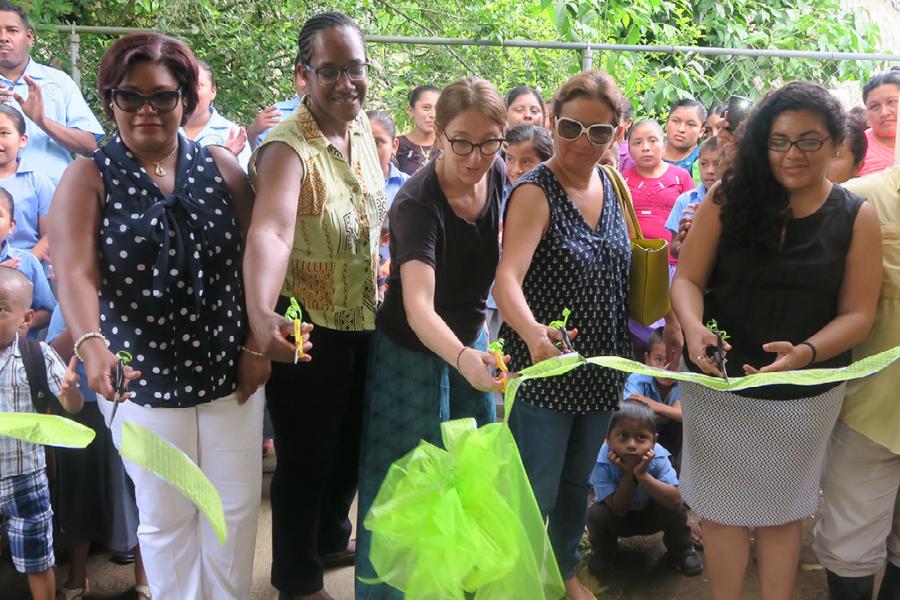
As a result of these positive developments, the Global Laboratory Initiative will expand its partnership in 2019 to two new polyclinics in the northern Corozal District, aiming at providing key medical laboratory services to twelve of Belize’s poorest communities, and the country’s experience has been selected as the best practice to be showcased in the Foundation’s tenth-anniversary video.

